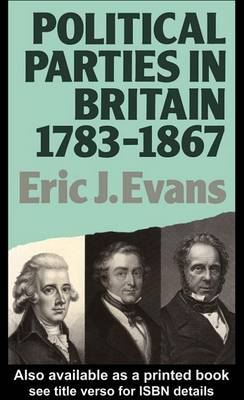Lancaster Pamphlets
4 total works
The 1832 Reform Act was a watershed in the history of modern Britain, profoundly affecting the composition of parliament and the course of all subsequent legislation.
This new edition of The Great Reform Act of 1832 extends and updates Eric J. Evans's classic account of the crucial political and economic issues and:
* highlights the travails of Toryism at the end of the 1820s
* clarifies complex questions of policy
* shows the connections between the Reform Act of 1832 and subsequent radical activity and reform legislation
* presents revised electoral statistics.
An accessible and stimulating guide to the student of modern political history, students of history and political history will find this invaluable to their studies.
William Pitt the Younger re-examines Pitt's career in the light of recent research and emphasizes that it should not be stereotyped as having a `reformist' phase in the years to 1793 and a `reactionary' phase thereafter.
His treatment includes explanation of:
* Pitt's rapid rise to power
* the importance of his relations with George III
* contemporary party politics, including his own description of himself as an `independent Whig'
* his administrative and financial reforms in the 1780s
* his foreign policy and war strategy
* his plans for assuring a satisfactory political union with Ireland and why they were frustrated.
This volume by Eric J. Evans, includes a complete historical background to the leader's political career and analyses his achievements. The author outlines Pitt's economic, domestic and foreign policy as well as detailing the changes in party politics and monarchy during the period.
Professor Evans goes on to deal with the paradox that though the Tory party was shattered by the corn law crisis, the subsequent period to 1867 saw an increasing importance being attached to party allegiance. He also discusses the waning power of the Crown, the growing importance of general elections, and various areas of divergence between parties. Although the emphasis of this book is necessarily thematic, a firm sense of chronology is always maintained.
Completing the trilogy of Great Victorian Prime Ministers in the Lancaster Pamphlet series, Professor Evans's reassessment of Peel's career sheds light both on a major political figure and, more widely, on party politics in the first half of the nineteenth century.



